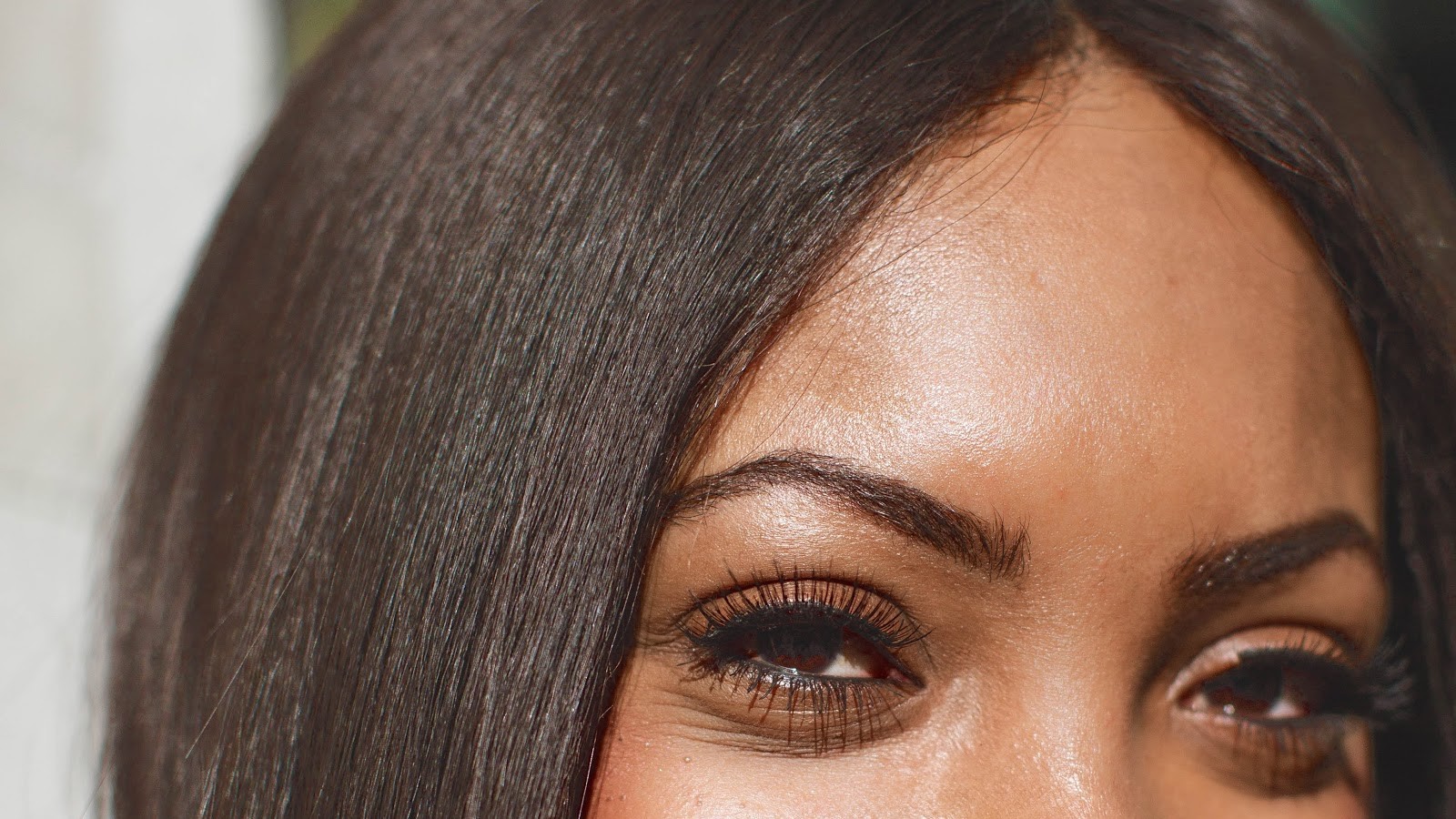Formulate user Tina writes in with some hair mask questions:
What's the difference between a hair mask and a conditioner? Do they contain different ingredients and do different things, or are they basically the same thing? And if they do the same thing, couldn't I just use my conditioner as a hair mask? Also, it's annoying and messy to walk around with wet hair mask hair, how long do I actually have to leave the hair mask in and can I apply it when my hair is dry? And also, I always shampoo after I do a hair mask because I don't want my hair to look oily and stuff. But is that just undoing the hair mask and sucking everything that I just put in my hair back out of it? Finally, should I shampoo before I put on my hair mask? I've heard that's helpful, but I also don't want to shampoo and then hair mask and then shampoo again, since that seems like a lot of shampoo and I don't want to over cleanse my hair.
Thanks for your questions, Tina! To answer your questions, we spoke with dermatologists Dr. Alan J. Parks, founder of Derm Warehouse, Dr. Cheryl Rosen, Director of Dermatology at Bowtied Life, and Dr. Mehmet Göker, Dermatology Specialist at The Vera Clinic.
First of all, what are hair masks?
Dr. Parks: Similar to a face mask, a hair mask is a targeted treatment for your hair that delivers concentrated ingredients to solve a hair concern, usually dryness or frizziness. It's a treatment usually applied in the shower or when hair is wet and sits in the hair for at least 5-10 minutes to deliver powerful hydration and repair to the hair.
Dr. Göker: A hair mask is a deep conditioning treatment that helps to heal damaged hair, improving the health of your scalp and boosting the strength of your hair.Hair masks can help to restore moisture which can be beneficial for dry or damaged hair.
What's the difference between a hair mask and a conditioner?
Dr. Göker: The main difference between a hair mask and a conditioner is that a hair mask is used to penetrate the internal structure of the hair known as the cortex and can be used to target a specific hair care problem such as damaged hair or dry hair. Opposingly, a conditioner acts only on the surface and is used as the second step to hair washing making the hair softer and easier to manage.
Dr. Parks: Similar to a weekly face mask vs your daily moisturizer, a hair mask is a treatment that delivers concentrated and powerful benefits to the hair, but isn't something that's done every day. Conditioner helps make the hair soft and manageable and is used every time you wash your hair.
What are the differences in how a hair mask is formulated vs how a conditioner is formulated?
Dr. Göker: A hair mask is typically made of nourishing oils, multiple moisturizing and conditioning agents such as glycerol, propylene glycol and panthenol. These formulas target damaged and dry hair by nourishing it and bringing it back to health.
Dr. Rosen: A hair mask is different than conditioner in that it is thicker and contains more ingredients, such as oils and proteins, which are beneficial for the hair.. Hair masks often contain nourishing ingredients like oils, waxes, proteins, and vitamins that help to strengthen and moisturize your hair.
Since you shouldn't use a hair mask every day, how frequently should you use a conditioner vs how frequently should you use a hair mask?
Dr. Parks: Conditioner should be used anytime you use shampoo in your hair to ensure ample moisture and strength in the hair post-washing.Conditioner is more lightweight than a hair mask and gives the hair the conditioning it needs daily without weighing it down with heavier treatments consistently. A hair mask is usually a thicker consistency and should be used once a week when your hair feels dry, damaged, or in need of extra hydration.
Can you use your conditioner as a hair mask?
Dr. Göker: If you don't want to use a separate hair mask, your conditioner can take its place (even though there is usually an increased level of hydrating ingredients in a hair mask compared to a conditioner).
Dr. Rosen: Using a conditioner as a hair mask is an easy and effective way to give your hair some extra hydration and nutrients.The key to using a conditioner as a hair mask is to make sure that you leave it on for long enough to allow the ingredients to be absorbed by the scalp and hair. Typically, I would recommend leaving it on for at least 30 minutes. If you have time, you can even leave it on overnight.
Can you apply a hair mask when your hair is dry, or only when it's wet?
Dr. Parks: When you leave a hair mask on for a prolonged period of time, it allows the hair to draw in moisture inside. The key is to always apply masks when your hair is wet, as wet hair is more porous than dry hair and can draw in those hydrating ingredients more effectively. As the hair draws in this moisture, the mask can be rinsed off and you can shampoo your hair, as the hair strands have already taken from the mask and absorbed.
But if you leave a hair mask on for a few hours and then shampoo, are you completely undoing the hair mask?
Dr. Rosen: After rinsing the hair mask from your hair with warm water, you can wash your hair with shampoo after using a hair mask. There are several reasons why this is a good idea.
First, it will help remove any product build-up on your hair. Second, it will help keep your scalp healthy and free of any irritation. Third, it will help your hair mask work better by ensuring that all of the ingredients are working together evenly.
When is the best time to apply a hair mask?
Dr. Parks: A hair mask is best applied after shampooing and rinsing the hair to get all the excess oil and grime out and provide a blank canvas for the mask to work on.
Dr. Göker: It's vital to use a hair mask treatment after shampooing your hair. Using shampoo first will breakdown product build up, allowing the mask to fully penetrate and focus on the damaged or dry areas.
What's the best way to apply a hair mask so you don't get it all over your clothes/skin?
Dr. Parks: After you shampoo, you should apply the hair mask from your roots to your ends and tie it up in a bun or with a shower cap to keep the mask from getting washed off or transferring to your skin, especially if it's sensitive or acne-prone.
Dr. Göker: I suggest applying a hair mask after shampooing and before applying conditioner. Thoroughly apply the hair mask on damp, towel-dried hair for best results. You can also use a hairbrush to apply the mask nearer the scalp and run the brush through your hair to help ensure the mask is evenly distributed. Once the mask is applied, I suggest wrapping a towel around your head to prevent it from dripping onto the skin. This will also add some heat, helping the ingredients absorb into your hair.
How long should you leave the hair mask on, and how do you rinse it out?
Dr. Göker: It's best to leave the mask on for at least 20-30 minutes. After, be sure to thoroughly wash and rinse your hair.
Dr. Rosen: In regard to length of time, you can leave a hair mask on for a few hours based on what is prescribed in the instructions. Some masks recommend leaving them on overnight.
The length of time you leave the mask on will depend on the ingredients in the mask. For example, if the mask contains clay, it is important to rinse it off after a few minutes because it can dry out your hair and scalp. But if the mask contains moisturizing ingredients, you can leave it on for a longer period of time.
Wanna learn more about the world of skin and hair care? Here's your next read:
Frizzy Curly Hair Care 101
How to defrizz your curls and get 'em back into shape!
Hot Rollers Vs. Curling Irons
What's the difference between hot rollers and curling irons?
Difference Between a Mole and a Freckle
What's the difference between a mole and a freckle?
Moisturizer vs Lotion: What's the difference?
Can you use body lotion on your face?
Tips For Washing Hair In Hard Water
This is your guide to washing your hair in hard water
Minimalist Hair
Welcome to the wonderful world of minimalist hair
Type of Combs: Materials and Shapes
Your complete guide to picking out a comb


